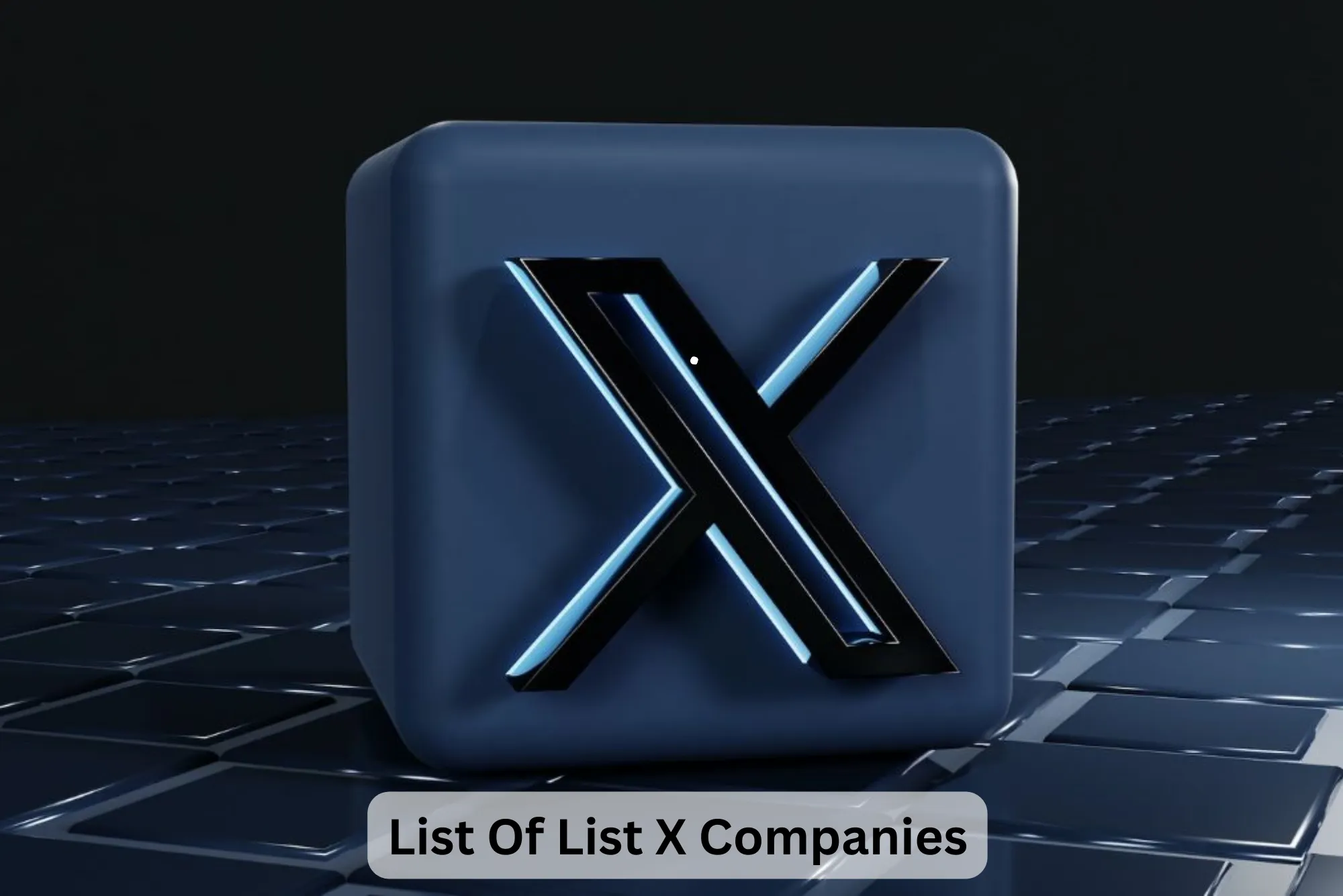In the dynamic arena of industry and national security, certain entities hold a distinctive status known as List X designation. These companies, often operating in sectors crucial to defense, technology, and government contracting, possess unique capabilities and clearances that enable them to engage in sensitive projects and collaborations.
Exploring the intricacies of List X Companies is essential for comprehending their impact on both commercial ventures and national security initiatives.
What are List X Companies?
List X Companies are organizations authorized to handle classified information and participate in government contracts involving sensitive projects. This designation, governed by regulatory bodies and stringent security protocols, signifies a company’s compliance with rigorous standards for safeguarding classified data.
Criteria for achieving List X status typically entail robust security measures, stringent personnel clearance processes, and adherence to specific regulations and guidelines established by relevant authorities.
Benefits of List X Companies
The designation of List X confers several advantages upon the companies that possess it. Foremost among these benefits is the access to lucrative government contracts and opportunities to contribute to critical national security initiatives.
By engaging in classified projects, List X Companies enhance their credibility and reputation within the industry and among government agencies, positioning themselves as trusted partners in safeguarding sensitive information and advancing technological capabilities.
Moreover, List X Companies often enjoy a competitive advantage in sectors where government contracts play a significant role, facilitating opportunities for growth, innovation, and collaboration with other industry stakeholders.
Challenges and Considerations
Despite the myriad benefits associated with List X designation, companies face notable challenges and considerations in maintaining this status.
The stringent security measures and regulatory requirements imposed on List X Companies demand substantial investments in infrastructure, technology, and personnel training to ensure compliance and mitigate security risks effectively.
Additionally, List X Companies may encounter limitations on their commercial activities, as certain contractual obligations and security clearances may restrict their operations or impact their ability to pursue certain market opportunities.
Furthermore, the heightened scrutiny and oversight accompanying List X designation necessitate robust compliance mechanisms, organizational culture shifts, and ongoing investments in security and risk management to uphold the integrity of classified projects and protect sensitive information from unauthorized access or exploitation.
Examples of List X Companies
The landscape of List X Companies encompasses a diverse array of industries, each contributing specialized capabilities and expertise to support national security objectives and government initiatives. Here are further insights into some notable List X Companies across various sectors:
Aerospace and Defense Sector
Boeing
As one of the world’s largest aerospace companies, Boeing holds List X designation, reflecting its integral role in supporting defense programs and providing innovative solutions for both military and commercial applications.
With a rich history of delivering advanced aircraft, defense systems, and space exploration technologies, Boeing continues to leverage its expertise to address evolving security challenges and advance the capabilities of the aerospace industry.
Lockheed Martin
Renowned for its pioneering work in defense, aerospace, and technology, Lockheed Martin is a prominent List X Company trusted by governments and military organizations worldwide.
From developing cutting-edge fighter jets and missile defense systems to delivering space exploration technologies and cybersecurity solutions, Lockheed Martin remains at the forefront of innovation, driving progress in national security and global defense capabilities.
Raytheon Technologies
Formed through the merger of Raytheon Company and United Technologies Corporation, Raytheon Technologies is a powerhouse in aerospace and defense, holding List X designation for its contributions to critical government projects and classified initiatives.
With a diverse portfolio spanning aerospace, defense, and intelligence solutions, Raytheon Technologies plays a pivotal role in enhancing national security, protecting critical infrastructure, and advancing technological innovation.
Technology Sector
Palantir Technologies
Recognized for its advanced data analytics and software solutions, Palantir Technologies is a List X Company trusted by government agencies and intelligence organizations for its ability to handle classified information and support mission-critical operations.
Palantir’s platforms empower users to analyze vast amounts of data, uncover actionable insights, and make informed decisions in complex and dynamic environments, reinforcing its position as a leader in data-driven intelligence and national security solutions.
Amazon Web Services (AWS)
As a leading provider of cloud computing services, AWS holds List X designation for its secure and scalable infrastructure, enabling government agencies and organizations to host classified workloads and sensitive data in the cloud.
With a robust suite of cloud services, including storage, compute, networking, and artificial intelligence, AWS empowers customers to innovate rapidly, enhance operational efficiency, and maintain compliance with stringent security requirements, making it a preferred choice for government cloud deployments.
Microsoft Azure Government
Microsoft Azure Government is a trusted cloud platform for government agencies, holding List X designation for its commitment to security, compliance, and data protection.
With specialized cloud services tailored to the unique requirements of government customers, Azure Government enables agencies to modernize their IT infrastructure, deploy mission-critical applications, and harness the power of data analytics and artificial intelligence to drive innovation and achieve their strategic objectives.
These examples underscore the diverse capabilities and expertise offered by List X Companies across the aerospace, defense, and technology sectors.
By leveraging their specialized knowledge, resources, and security clearances, these companies play a vital role in supporting national security priorities, advancing technological innovation, and safeguarding critical infrastructure ajman companies list.
How to Identify List X Companies
Identifying List X Companies is essential for stakeholders seeking to engage with firms possessing specialized capabilities and security clearances. Government databases, official listings, and industry publications are valuable resources for identifying List X Companies and verifying their credentials.
Additionally, consulting with legal and regulatory experts familiar with the nuances of List X designation can provide further clarity and guidance on navigating the complex landscape of industries where security and innovation converge.
List X Companies occupy a unique and indispensable position at the intersection of industry and national security, wielding specialized capabilities, and clearances that enable their involvement in classified projects, government contracts, and collaborative initiatives with government agencies and industry partners.
Understanding the significance of List X Companies, their benefits, challenges, and identification methods is essential for navigating the complex landscape of industries where security, innovation, and regulation intersect.
As List X Companies continue to play a pivotal role in shaping the future of technology, defense, and national security, their impact on both commercial ventures and governmental initiatives remains profound, underscoring the importance of fostering collaboration, innovation, and responsible stewardship of sensitive information to address evolving security challenges and advance the collective interests of industry and society.
Business is the backbone of economic growth, fostering innovation, creating job opportunities, and driving global trade. At LookMe.ae, we aim to empower entrepreneurs and organizations by providing a platform to showcase their services and connect with potential clients. Whether you’re a startup seeking visibility or an established enterprise looking to expand your reach, LookMe.ae serves as a one-stop solution to elevate your business.
Our user-friendly platform ensures seamless navigation for users, enabling businesses to list their offerings effectively while customers can find reliable services with ease. With a focus on fostering trust and transparency, LookMe.ae bridges the gap between businesses and consumers, creating a thriving ecosystem of collaboration and growth. By supporting diverse industries, we help businesses thrive in a competitive market, ensuring sustainability and success. Join LookMe.ae today and take the first step toward transforming your business into a well-recognized brand.











